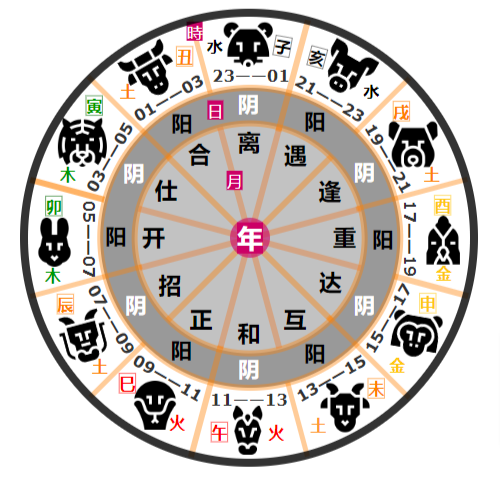Taoist Rituals
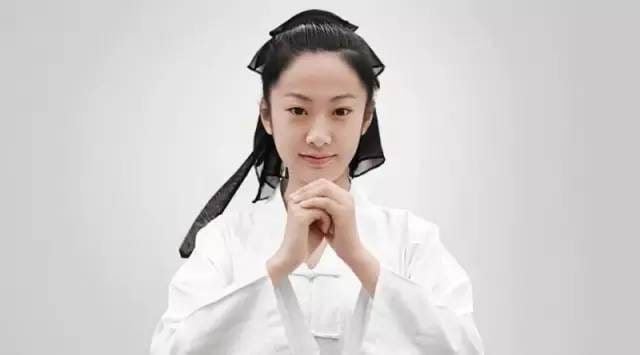
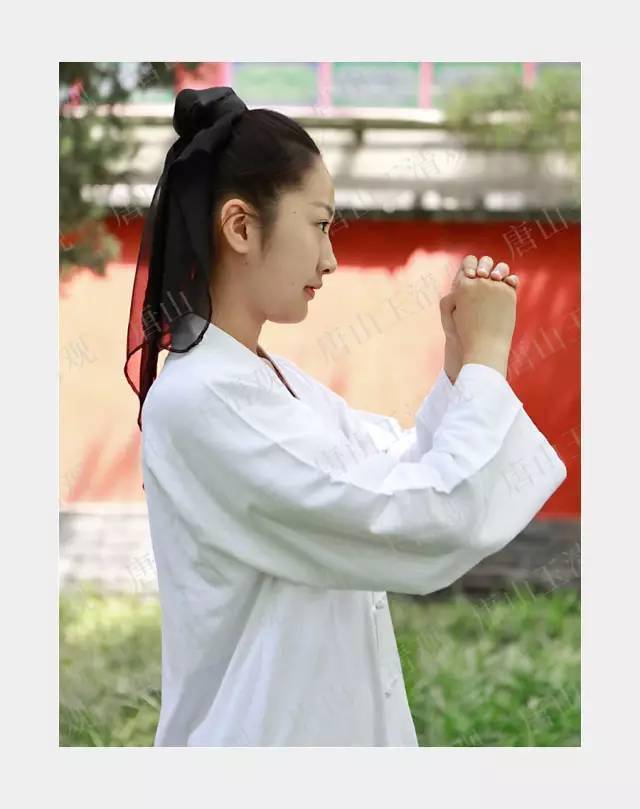
Bowing etiquette
When performing the ceremony, the legs should be straight, the upper body should be upright or slightly bent, and the hands should be clasped in front of the chest, with the left hand clasping the right hand, implying the promotion of good and suppression of evil (because the left hand represents good and the right hand represents evil). The clasping hands ceremony is also called the clasping fist ceremony. Taoist friends and peers often perform this ceremony when they meet and interact with each other, expressing respect for others in a humble way.
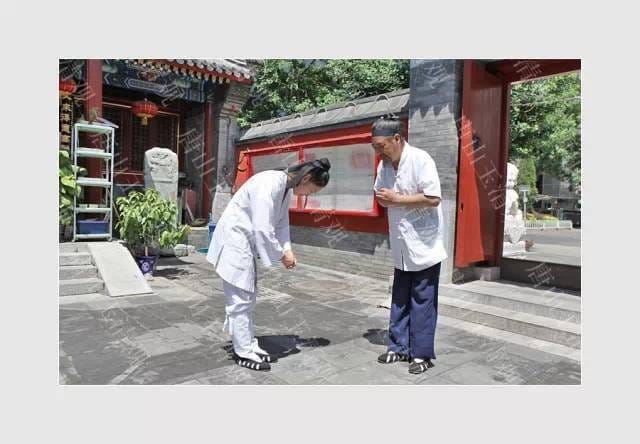
On the basis of the Gongshou, bow your body and clasp your hands in front of your abdomen. As you bow your body, bring your hands down synchronously to salute others. Because raising your hands is accompanied by bending your body (bowing), it is also called "da gong". Because the body is bent into a crescent shape, it is also called "yuan yi". When bowing to others, do not bend too much to avoid protruding your arms and appearing unsightly. Bowing is more respectful than gongshou, and it is often performed to elders.
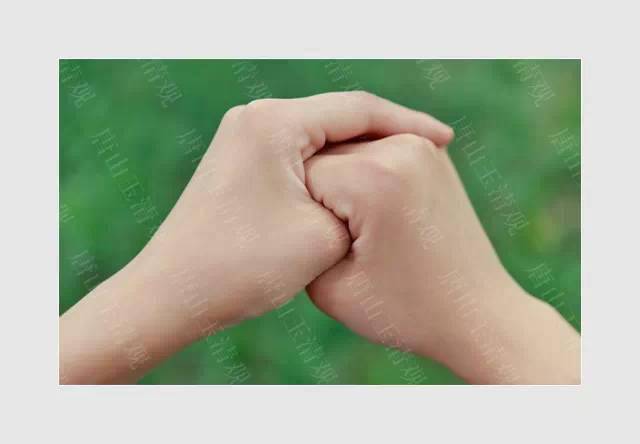
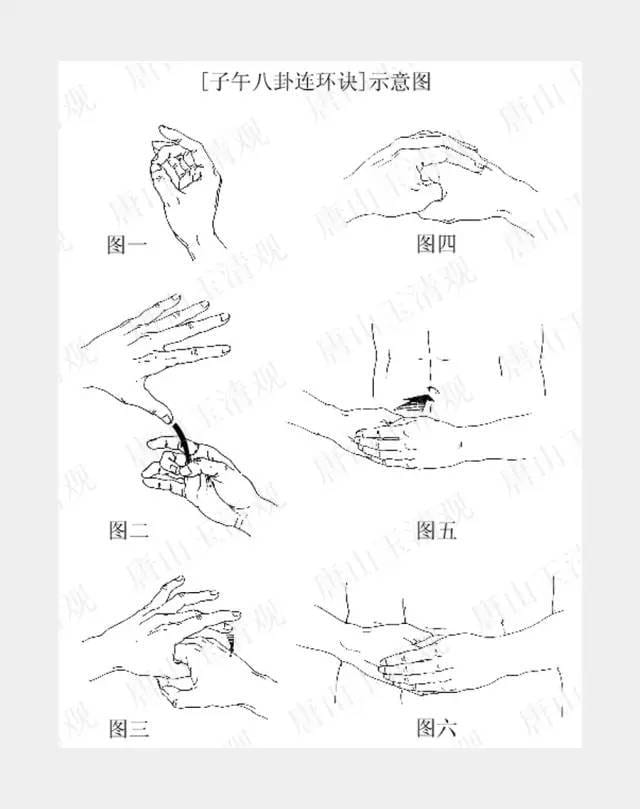
The ritual of entering the temple
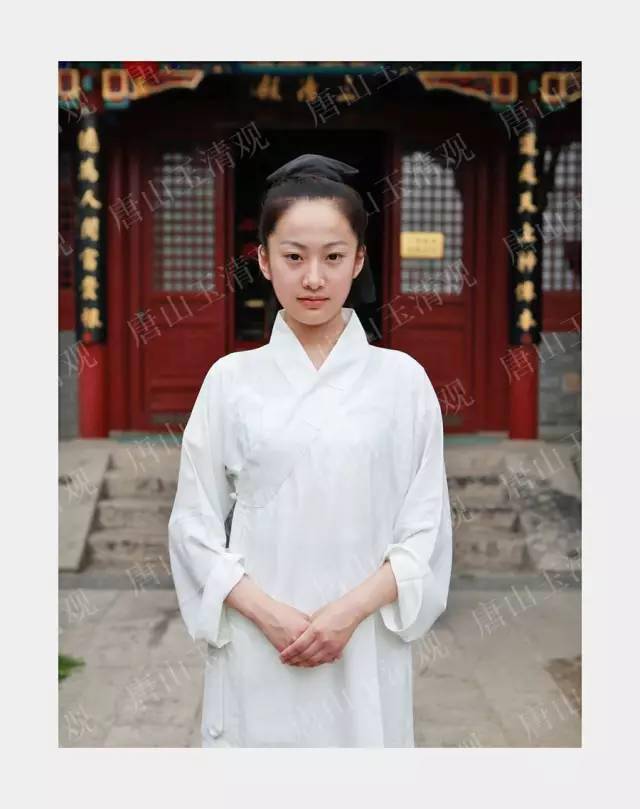
Bath and cleansing
The bathing that Taoism talks about is to wash away the dirt on the body. Taoism teaches that people should purify their minds, which means to cleanse their hearts and minds.
When worshiping the gods, you must dress neatly and properly. You cannot wear a vest, shorts, or slippers, as this is a blasphemy to the gods.
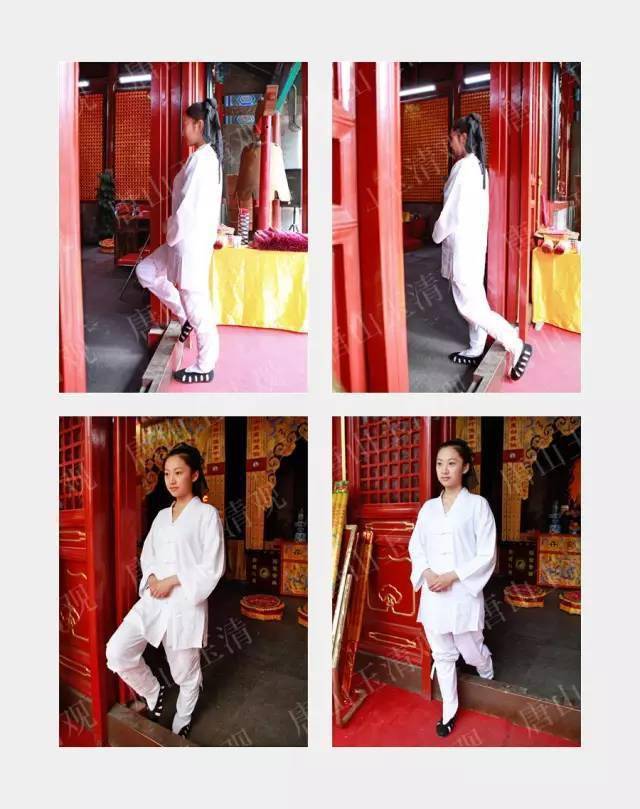
When you go to a Taoist temple to worship, you should know some worship rules. You usually walk to the right side of the door when entering the temple (because Taoist temples are generally built facing north and south, so you should walk to the right side, that is, to the east), or to the left side. You cannot walk in the middle or on the road. You should not speak loudly when walking, and you should not make noise in the temple. You should be sincere and calm. If you enter the temple from the right, you should step in with your right foot and enter from the right side of the temple gate. That is to say, if you enter from the east, you should exit from the west, and you should also step out with your right foot when exiting from the west. Taoism says that you should enter from the east and exit from the west, which is to go with the flow and is a concrete manifestation of imitating nature based on the natural law that the sun rises in the east and sets in the west.
During worship, five kinds of offerings, namely incense, flowers, lamps, water and fruits, are often offered on the altar. This is called vegetarian offering. There are regulations and taboos for each of the five offerings.
Incense burning etiquette
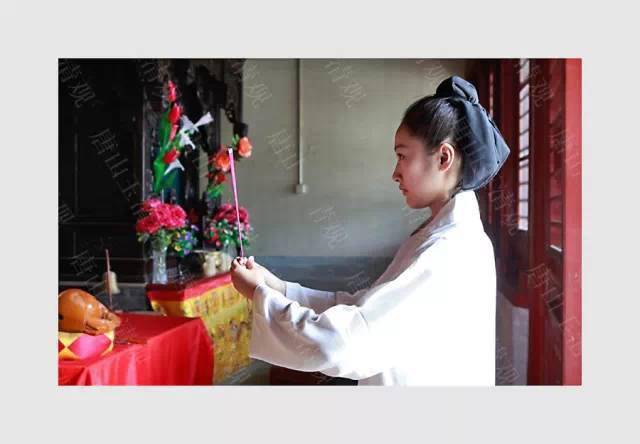
There are certain rules to follow when burning incense. The specific steps are as follows:
(1) Choose three incense sticks, light them with your left hand (the left hand seal is the single white crane seal), and flick your sleeve with your right hand. When burning, if you are using an open flame, you cannot blow it out with your mouth, but should fan it out up and down, or with your right hand.
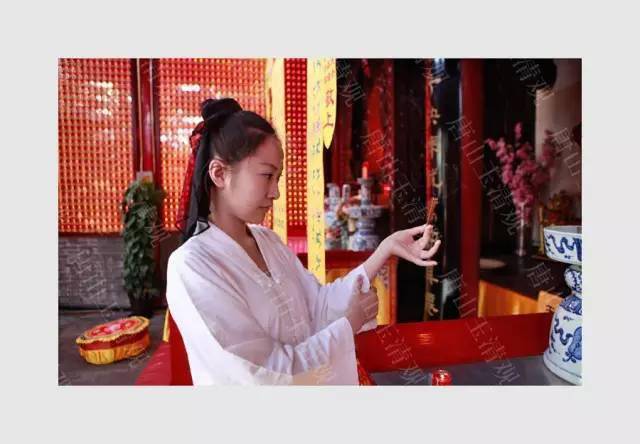
(2) Face the statue of the deity, hold incense in both hands, and bow in respect.
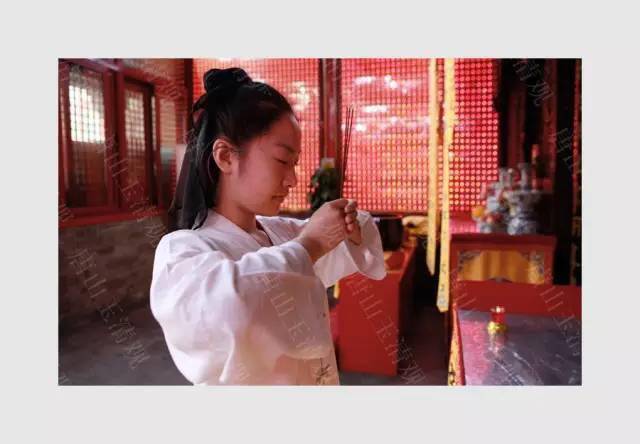
(3) Inserting incense sticks. The left hand is also used to insert incense sticks. The three incense sticks should be inserted straight and flat, with a distance of no more than one inch between them (to represent the inch of the heart).
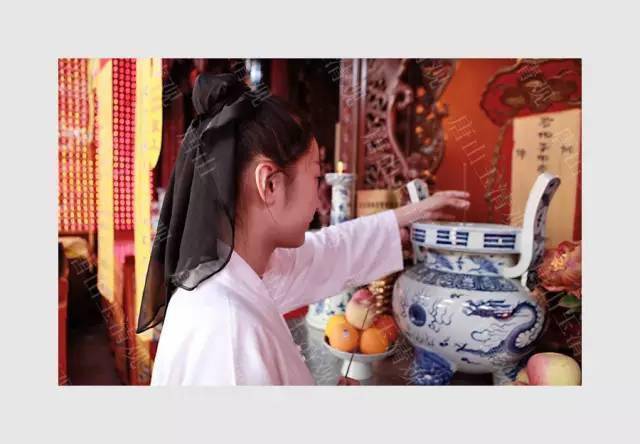
When inserting incense, insert the middle stick first, which represents the Jade Pure Yuanshi Tianzun, also the Tao treasure, then insert the incense on the left, which represents the Lingbao Tianzun of Shangqing Realm, which represents the Sutra treasure, so it is called the Sutra treasure. The third incense stick is the one on the right, which is for offering to the Daode Tianzun of Taiqing Palace, which represents the Master treasure. The three incense sticks represent the Three Treasures of "Tao, Sutra, and Master".
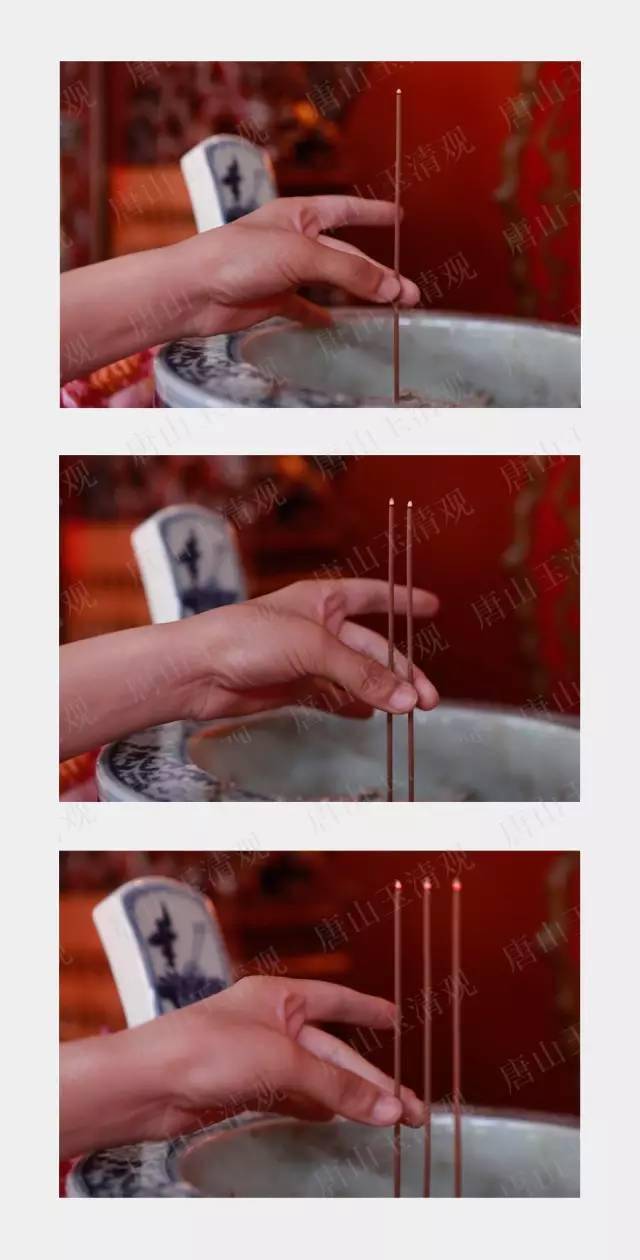
Another requirement for inserting incense is that the three incense sticks must be inserted flat and straight. The interval between the incense sticks cannot exceed an inch. Taoism believes that if the interval is more than an inch, the gods will not believe it. In addition, it is said that the incense sticks must be inserted straight and flat to touch the gods. This requires you to be calm and composed. Burning incense also tells us many truths. Why do you need to insert it flat? It is to make you calm and composed. Why do you need to insert it straight? It is to make you upright. Why do you need to insert it an inch? It is to be an inch heart. This is the basic rule of burning incense.
The flowers used for offering to gods in modern times are often plum, orchid, chrysanthemum, bamboo and other seasonal flowers as the best, followed by narcissus, peony and lotus. The flowers used for worshiping gods should be fragrant and fragrant. Those without fragrance or with strong and disgusting fragrance should not be used for worshiping gods. The lamps used for the altar must be lit with sesame oil. It is forbidden to use oil from livestock, otherwise it will offend the gods. The Taoists call the water for offering to the altar seven treasures. This water should not be raw or unclean; the fruit should be washed and dried before offering. Round fruit is the best choice for offering, and the round shape represents perfection. Generally, apples represent peace, oranges represent good luck, oranges represent wishes come true, and bananas represent wealth. Business people generally prefer to offer them. Kiwis are also round fruits, representing perfection. Grapes are more numerous, representing fruitfulness. They all have auspicious meanings. Among the fruits, there are several fruits that cannot be offered. The first one is plums. Plums cannot be offered to Taishang Laojun, because Taishang Laojun's surname is Li, so it is taboo; pomegranates cannot be offered to Zhenwu Emperor, because the seeds of pomegranates need to pass through the sidewalk before they can grow and sprout, which means blasphemy against the gods, so pomegranates cannot be offered; pears cannot be offered either, because people generally avoid pears because they mean separation. These are some taboos for offering fruits. Generally, five fruits are offered in a plate, and a total of five plates are offered in a hall.
Kneeling etiquette
There are usually three statues of gods in Taoist temples. People usually worship the statue in the middle first, then the one on the east, and then the one on the west. This is because in Taoism, the east belongs to the Azure Dragon and the west belongs to the White Tiger. The east represents life, so one should kowtow to the Azure Dragon deity first.
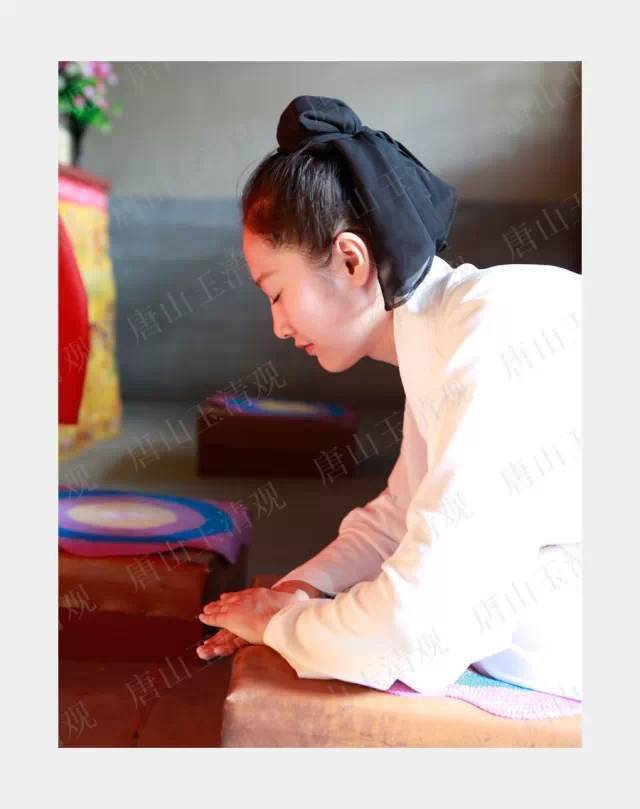
There are two types of kneeling ceremonies in Taoism: one is one bow and three kowtows, and the other is three bows and nine kowtows. The one bow and three kowtows ceremony is performed on ordinary days; the three bows and nine kowtows ceremony is usually performed on the first and fifteenth day of the lunar month, the birthdays of the ancestors, and some major Taoist religious activities.
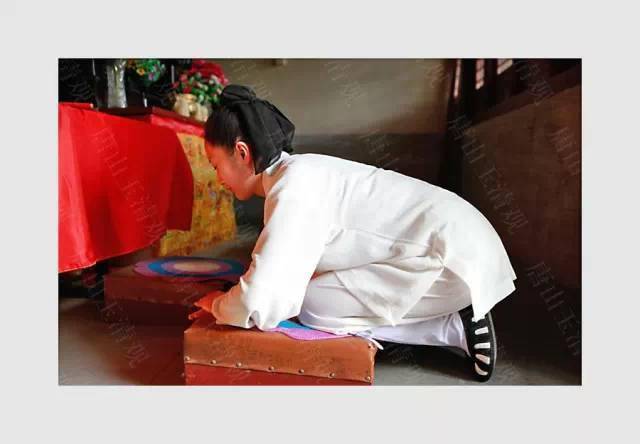
The specific method of worshipping with one bow and three kowtows is as follows: (1) Stand in front of the kneeling mat (worship mat) with your feet in the shape of an "eight" with your heels two to three inches apart. (2) While bowing, clasp your hands in front of your abdomen from the bottom to the top (level with your mouth). (3) Remove your left hand from your right hand and cover your heart (a distracted mind is a taboo in Taoism, and covering your heart means paying respect to the gods with a focused and quiet heart). At the same time, bend over calmly, press your right hand on the kneeling mat, and kneel down. Then, remove your left hand from your heart and press it on the back of your right hand to form a "cross" shape. When kneeling, men kneel down in a large area, that is, their legs are apart, and women kneel down in a straight line, that is, their legs are together. (4) Prostrate yourself and kowtow, with your head knocking on the backs of your hands (the head and spine should be bowed at the same time, and it is forbidden to raise your arms above your head or your hips above your head, which is improper). At this time, imagine the face of the gods in your heart and pray sincerely. (5) Raise your head, put your left hand back to cover your heart, use your right hand to slowly stand up, then put your right hand back, clasp your hands together and raise them high, preparing to kowtow for the second time.
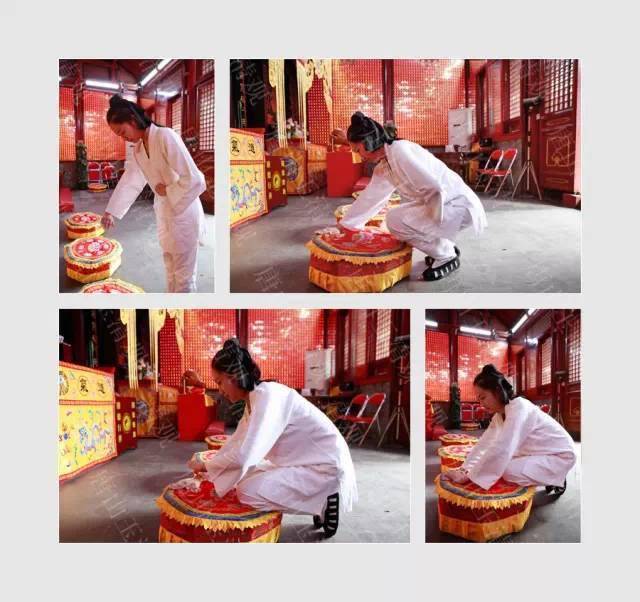
When we kowtow, we must first keep our mind calm and peaceful, and our body and mind must be very happy. It is not right to stand in front of the temple and think about trivial matters in the world. When Taoism kowtows, it is important to be calm and dignified. To be calm means that you must be very calm in your heart, without any thoughts, and only the gods are in front of you.
